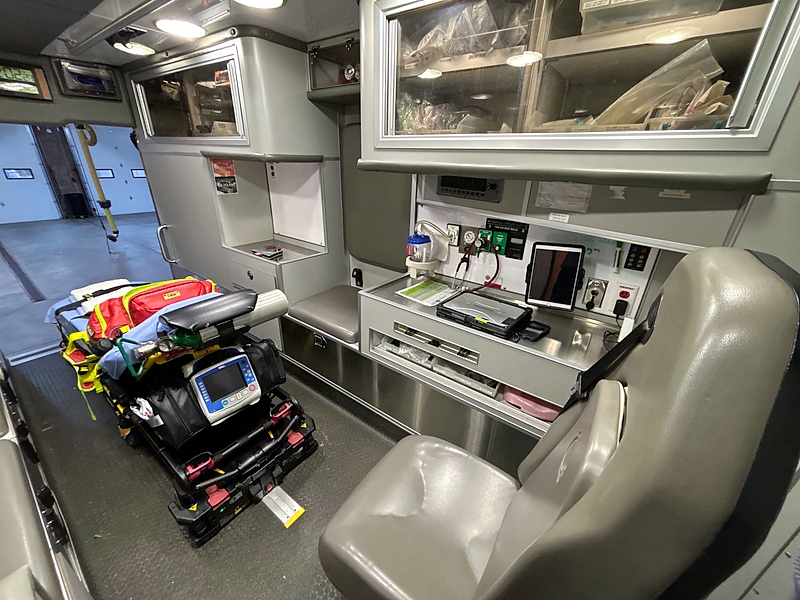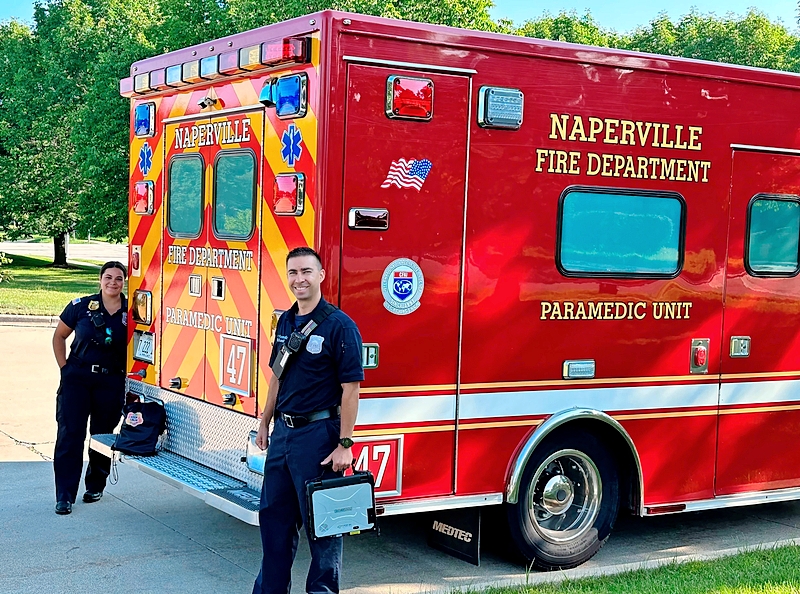Reducing Risks
By Mark Loehrke
February 2024 View more Community
Naperville Fire Department’s Community Advocate Response Team helps prevent emergencies

For many people, 911 serves as a kind of catchall. When it comes to dire situations—a kitchen fire, chest pains, a car accident—911 is indeed the right call to make. But plenty of nonemergencies come through that line as well, and every one of them still requires a full Naperville Fire Department response, ultimately resulting in plenty of unnecessary emergency runs and hospital trips—and plenty of situations where the emergency response team has to leave the scene quickly to get back on ready duty before anything really gets resolved.
Bridging that gap—getting nonemergency callers the help they need without overtaxing emergency service personnel—is the goal behind NFD’s Community Advocate Response Team (CART), which helps prevent mental health and similar crises from escalating to life-threatening events. The initiative started back in 2021 as what Chief Mark Puknaitis calls a “power shift” of additional personnel for peak call times. This morphed into more dedicated nonemergency care services under the banner of CART in 2022, a concept that was recently expanded from its initial eight-hour window to a 24/7 service beginning last month. “Even those calls that don’t need our gold-standard six-minute response time for emergencies still need attention—they’re very important situations,” Puknaitis explains. “Sometimes people call us and they’re not really sure what’s going on—they just don’t feel right. CART is designed to respond to those nonemergent cases, which are often mental health situations, and not just make a determination in five minutes about going to the hospital or signing a release, but instead spend as much time as we have to and solve the problem.”
CART now boasts a team of nine paramedics with critical incident training available to respond to calls that, while not emergencies, still require a thoughtful response. CART members are not meant to be seen as social workers, Puknaitis stresses, but by having additional training in those areas, the team can possibly get out in front of situations or issues that might otherwise eventually lead to an emergency call for a suicide or overdose. “Our goal is community risk reduction; we want to reduce the risk before a situation happens,” he notes. “Once we get an emergency call it’s because something failed and it’s already too late. But if we can get ahead of some of these things by responding in this way, maybe we can nip some of these situations in the bud before they escalate.”

Those seeking help will still call 911, but the operators use the info from the caller to determine whether to dispatch emergency services or CART.
The program also has a fiscal benefit: Officials estimate CART could save the city more than $1 million in annual overtime paid to current fire department staff members.
With CART moving to a full-time service in 2024, Puknaitis says the focus now is on building more awareness throughout the community. To that end, NFD is working on a new design for its dedicated CART vehicle and doing everything it can to get the word out to Naperville residents about this unique service offering. “A lot of people don’t know who to call in certain situations; they just know they need help and they think of 911,” he says. “CART is helping to change the paradigm of the kind of help that we can provide. This is all about getting people the help they need.”
Photos: Naperville Fire Department


